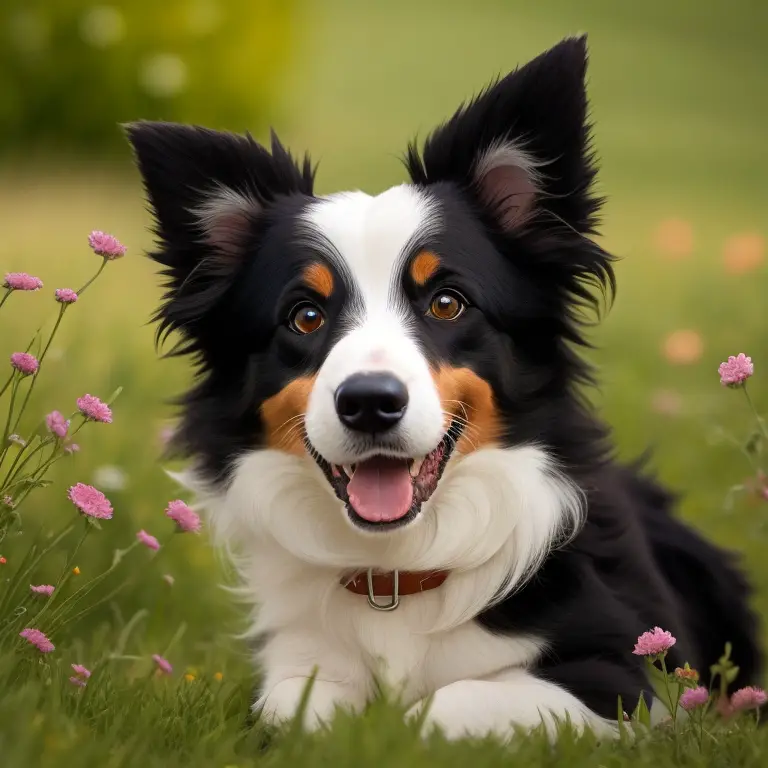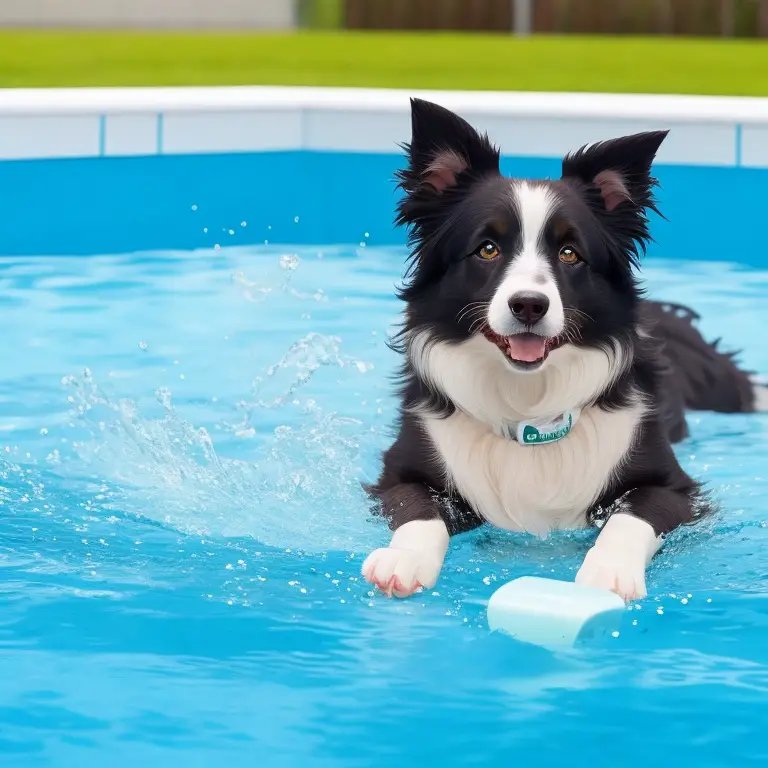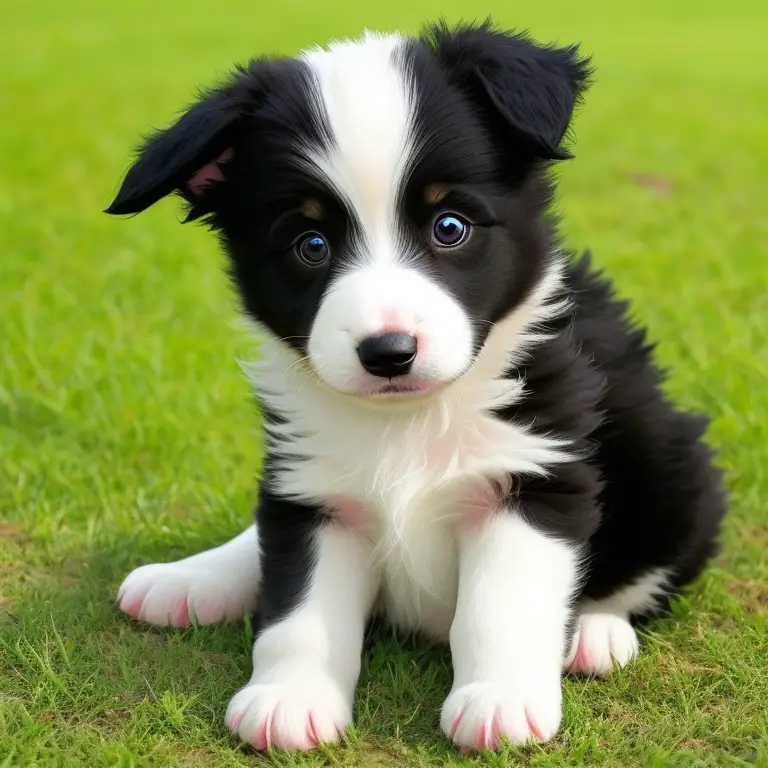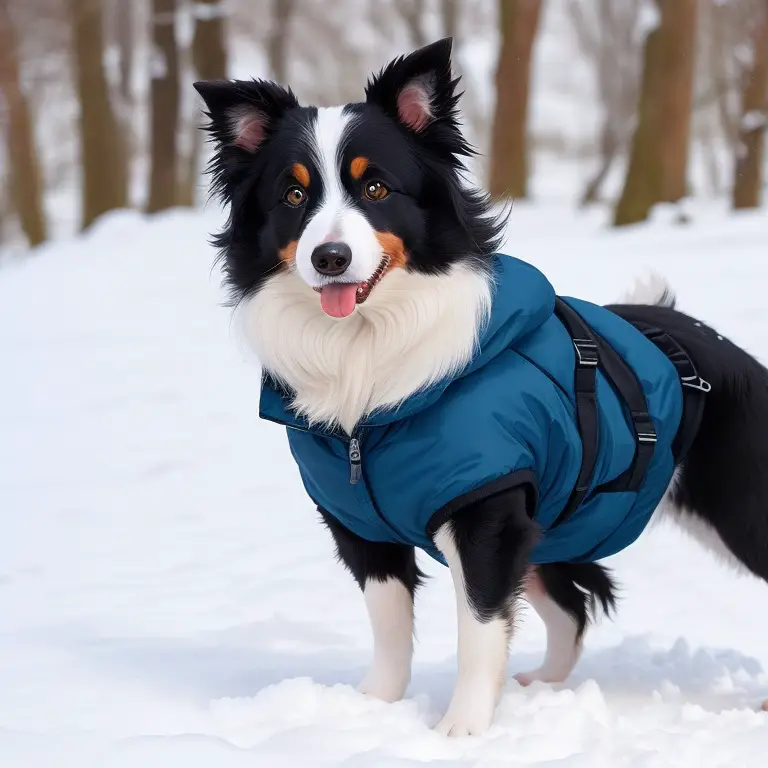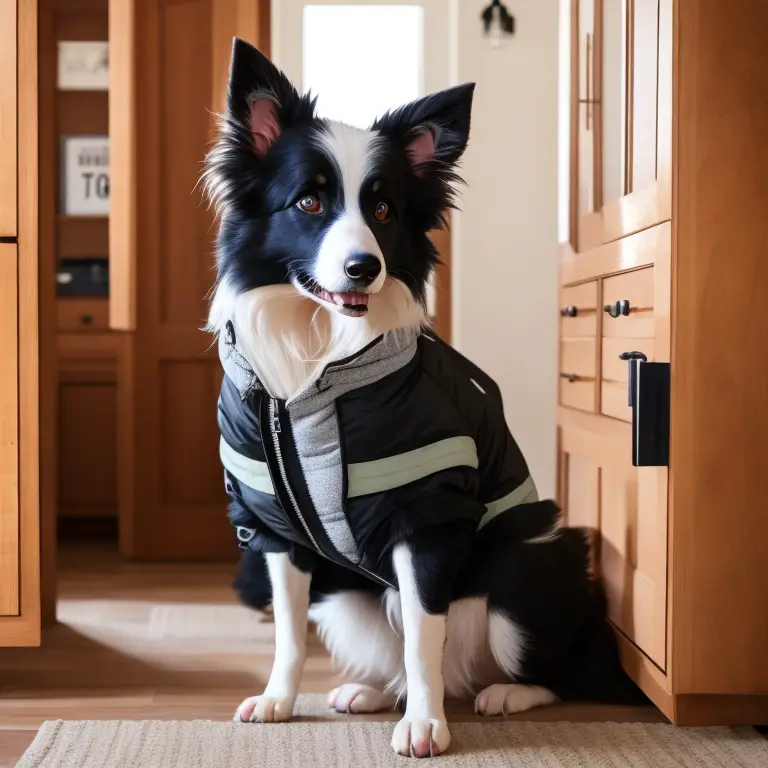Are Border Collies Good With Small Children?
Are you considering a Border Collie as a family pet but worried about their compatibility with small children? Look no further! In this article, we’ll discuss the temperament and personality traits of Border Collies, the importance of socialization and training, real-life examples of successful interactions between Border Collies and small children, precautions to keep in mind, and more.
Whether you’re a new parent or a dog lover looking to adopt a Border Collie, this article provides valuable insights on whether or not this breed is a suitable match for your family’s needs.
| Question | Answer |
|---|---|
| Are Border Collies good with small children? | It depends on the individual dog’s temperament and the level of supervision provided by adults. |
| Pros | Border Collies are intelligent, trainable, and loyal dogs that can make great companions for children who are able to handle their high energy level. |
| Cons | Border Collies can be very active and need plenty of exercise and mental stimulation, which may be difficult for busy families to provide. They may also have a strong prey drive, which can lead to chasing and nipping at small children. |
Temperament and Personality Traits
Description of Border Collies temperament
Border Collies are known for their energetic, intelligent and loyal temperament. They are bred as working dogs and are extremely active, requiring plenty of physical and mental stimulation to maintain optimal health and happiness.
They are highly trainable, making them excellent for tasks such as obedience and agility training.
Although Border Collies are highly affectionate and loyal to their family, they may be wary of strangers, making early socialization and positive exposure to different people and situations crucial. Their herding instincts may cause them to try to “herd” children, but with proper training, this behavior can be mitigated.
Overall, Border Collies have a lot of energy and require plenty of physical and mental stimulation.
They are highly intelligent and trainable. However, their herding instincts may require careful training and socialization when it comes to interacting with small children.
Child-friendly personality traits
When it comes to child-friendly personality traits, Border Collies make excellent companions. They are known for their high energy levels, intelligence, and trainability, making them excellent playmates for children.
Additionally, Border Collies are typically very loyal, affectionate, and patient dogs.
They are also excellent protectors of their families, making them a reliable choice for parents looking for a trustworthy pet. Border Collies love children and are known to be gentle and tolerant with them.
They are typically social dogs and enjoy being around people, particularly children who have a natural curiosity and energy that matches their own.
Border Collies are very adaptable to new situations, making them a great choice for families that want to involve their pet in activities with their children, such as hiking, running, or playing outside. Border Collies have many child-friendly personality traits, including high energy, intelligence, trainability, loyalty, affection, and patience.
They are gentle and tolerant with children, making them excellent companions for families with kids.
However, it is essential to socialize and train them correctly to ensure they are well-behaved around small children.
Potential issues with small children
When it comes to Border Collies, there are potential issues to consider if you have small children. While Border Collies have a charming personality and temperament, they were originally bred to herd livestock, so they have natural instincts to chase and sometimes nip.
This can be a concern if they are interacting with small children who may not understand how to act around dogs or who may appear as small, quick-moving targets.
Additionally, Border Collies can become overstimulated easily, making it crucial to supervise their interactions with children. If they become overwhelmed, they may bark excessively or try to chase, herd, or nip at a child.
It is also important to note that all dogs, including Border Collies, can become aggressive if they feel scared, threatened, or if they haven’t been properly socialized.
Therefore, if you have small children, it is essential to socialize your Border Collie from a young age and teach your children how to interact with dogs safely and kindly. Supervision, socialization, and education are the keys to ensuring that your Border Collie and small children can coexist in a safe and happy environment.
Socialization and Training
The importance of socialization for Border Collies
Socialization plays an essential role in the development of Border Collies. It is a critical process that has a long-term impact on their behavior, temperament, and personality.
Proper socialization helps Border Collies to cope with new environments, people, and other animals, including children.
Border Collies that are not adequately socialized may become shy, anxious, fearful, and even aggressive. This can lead to problems when they interact with small children.
Therefore, it is crucial to expose your Border Collie to various situations, environments, and people at a young age.
Socialization requires patience, consistency, and positive reinforcement. Introduce your Border Collie to new situations gradually and at their own pace.
This can include taking them to parks, dog-friendly events, and interacting with different people, children included.
Socializing your Border Collie with small children can be tricky, but it is not impossible. Expose your Border Collie to a variety of small children, but always supervise their interactions.
Teach your children how to interact safely with dogs and establish clear rules and boundaries.
Proper socialization allows Border Collies to feel comfortable and confident around children, leading to a healthy and happy relationship.
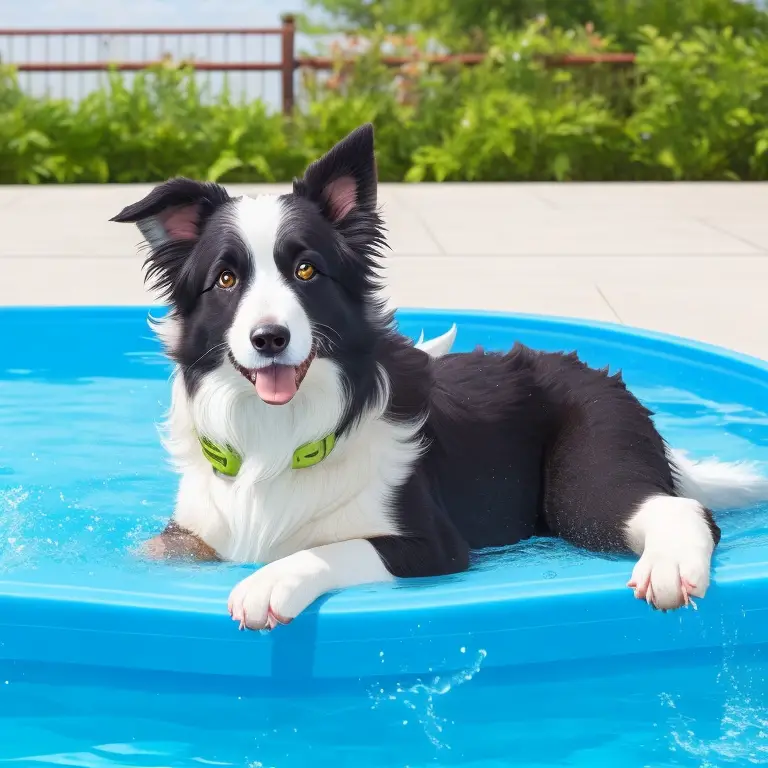
Tips for training Border Collies around small children
When it comes to training Border Collies around small children, here are a few tips:
- Start early: Begin socializing your Border Collie with children as early as possible. This will help your dog get used to being around children and develop a positive association.
- Consistency is key: Be consistent with your training. Make sure both your Border Collie and the children understand the boundaries and what’s expected of them.
- Reward good behavior: Positive reinforcement is a powerful tool in dog training. When your Border Collie behaves well around children, make sure to reward them.
- Supervision is important: Always supervise interactions between your Border Collie and children. This will ensure safety and prevent any unwanted behavior.
- Teach your children: Lastly, teach your children how to interact with dogs. Teach them to respect your Border Collie’s boundaries and body language, and not to approach them when they’re eating or sleeping.
By following these tips, you can help ensure a positive relationship between your Border Collie and small children.
Managing Border Collies and small children’s interactions
Socialization and Training: Managing Border Collies and Small Children’s Interactions Managing Border Collies and small children’s interactions is crucial to avoid any potential harm to either party. Border Collies are intelligent and trainable dogs, and with proper training, they can become great playmates for your young children.
Here are some tips for managing interactions between your Border Collies and small children:
- Teach your children how to interact with dogs and how to approach them correctly. Supervised play between dogs and children is vital.
- Train your Border Collie to behave around children, socialize them to be familiar with playing and jumping around children.
- Set boundaries and rules for both the dog and the child. For instance, prioritize quiet time if either the dog or child gets exhausted.
- Never leave your small children and Border Collies unsupervised. It is a potential safety hazard, no matter how well-trained or behaved the dog.
By following these tips, you can create a safe and positive environment for both your Border Collie and small children.
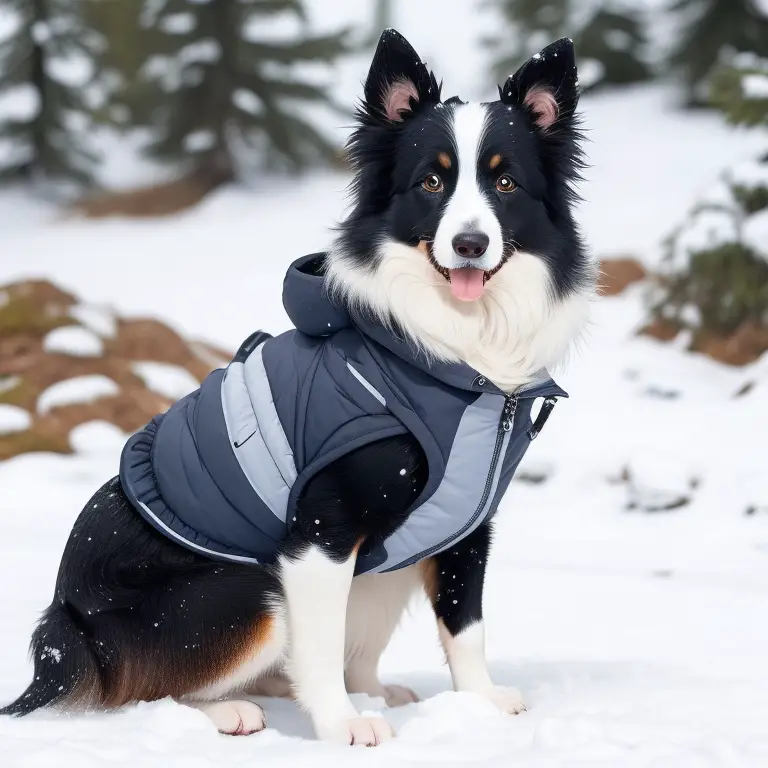
Potential challenges and how they can be overcome
Border Collies can be great with small children, but there are also several potential challenges that need to be taken into consideration. Some potential challenges include herding instincts, possible nipping or biting, and overwhelming energy that can be difficult for small children to handle.
However, these challenges can be overcome with proper training and management.
For example, teaching your Border Collie appropriate behaviors around children and controlling their space through crate training or baby gates can be effective techniques. Teaching children how to interact with dogs correctly, including being gentle and respectful, is also essential.
Additionally, appropriate amounts of exercise and mental stimulation can help reduce a Border Collie’s excess energy, making them calmer and easier to manage around children.
Consistent socialization can also help their social skills improve. Overall, Border Collies and small children can have successful relationships with proper management, training, and socialization techniques in place.
It’s important to be patient and persistent in overcoming potential challenges to ensure the safety and happiness of both your dog and your child.
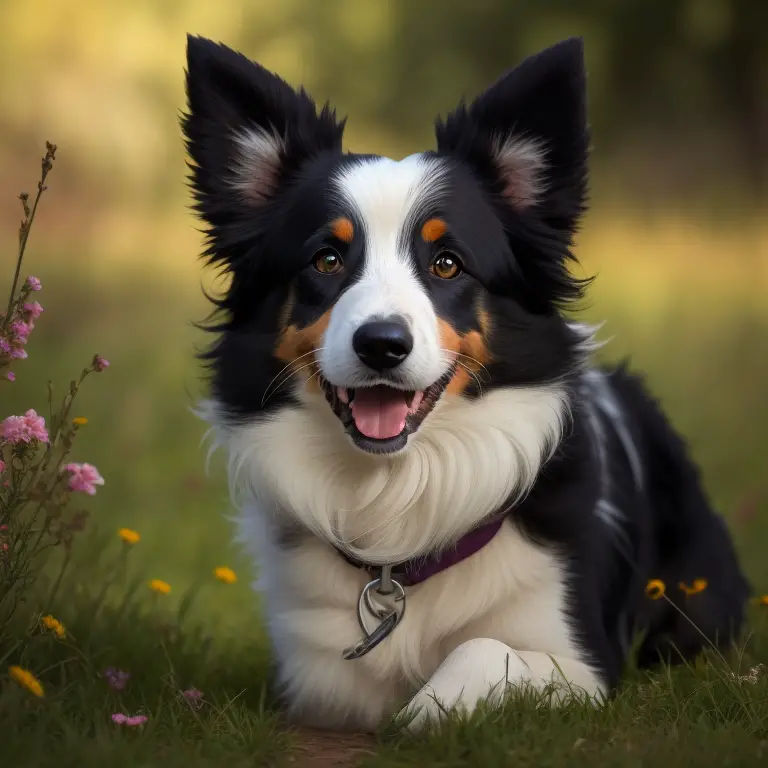
Precautions to Keep in Mind
Setting boundaries and rules for children and Border Collies
When it comes to Border Collies and small children, it’s important to set boundaries and rules to keep both safe and happy. Here are some things to keep in mind:
- Teach children not to touch or disturb the dog when it’s eating or resting.
- Create a designated area for the dog where children are not allowed to go without permission.
- Ensure that the dog has a safe and comfortable space of its own, like a crate or a bed, where the children cannot bother it.
- Train both the children and the dog to understand and respect each other’s boundaries.
- Always supervise interactions between children and the dog to avoid any potential accidents or miscommunications.
- Teach children how to interact with dogs in a safe and respectful manner, including how to approach, pet, and play with them.
By setting clear boundaries and rules for both children and Border Collies, you can help to foster a safe and happy relationship between the two. Don’t hesitate to seek professional help or advice if you’re unsure about how to proceed.
Supervision while children and Border Collies interact
Supervision is key when it comes to interactions between small children and Border Collies. Parents and guardians must be present at all times to ensure the safety of both the children and dogs.
Parents must also consider the age of the child.
Younger children may not understand how to approach and interact with dogs properly. It is important to teach children how to approach and handle dogs gently and calmly.
Furthermore, parents should never leave children alone with Border Collies, regardless of their age or the dog’s temperament.
Even a well-trained, friendly Border Collie can become agitated or anxious, leading to unintended consequences. While supervising interactions between children and Border Collies, it is also important to set boundaries and rules.
Children must learn to respect the dog’s space and not to approach them when they are eating or playing with their toys.
Overall, when it comes to Border Collies and small children, supervision is crucial. Parents must always be present, set boundaries, and teach their children how to approach and interact with dogs appropriately.
Teaching children how to interact with dogs
It is essential to teach children how to interact with dogs safely. Here are some precautions to keep in mind when teaching your children to interact with your Border Collie:
- Teach your children to approach the dog calmly and avoid sudden movements that might scare the dog.
- Teach your children to let the dog sniff the back of their hand before petting them on their chest or back. This will help the dog feel comfortable with the child’s presence.
- Never let your children pull the dog’s tail or fur, as this can hurt the dog and provoke them to react aggressively.
- Advise your children not to disturb the dog while it eats or sleeps, as the dog can become aggressive if they feel threatened.
- Always supervise interactions between your children and your Border Collie to prevent any potential harm to the dog or child.
By following these precautions, you can ensure that your child interacts with your Border Collie in a safe and friendly manner.
Conclusion
Border Collies can make great companions for families with small children. Their intelligent and loyal personalities make them excellent pets, but it’s important to remember they require proper socialization and training.
With the right approach, Border Collies and small children can have wonderful relationships.
As with any pet, precautions should be taken to ensure the safety of both the child and dog. Families considering bringing a Border Collie into their home should carefully evaluate their lifestyle and ability to appropriately care for and train the dog.
With adequate effort and care, a Border Collie can be a beloved member of the family for many years to come.

